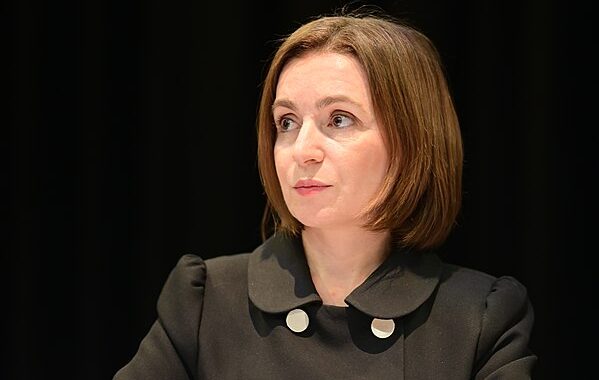Moldova has been a candidate for EU membership since 2022. It obtained this status simultaneously with Ukraine. Both countries wish to join as quickly as possible, and the EU has promised to expedite the process. Normally, the entire accession process can easily take ten to 15 years. However, considering the geopolitical situation in the region, both parties do not want to delay. Even if all the formal accession conditions can be met within seven years, will Moldova be economically and legally prepared to join the EU? A more important question is whether Moldova will reach 2030 as an independent, pro-Western country?
Tumultuous history
Like many other countries in the region, Moldova has had a tumultuous history for centuries. In the fourteenth and fifteenth centuries, it was an independent principality. After that, Moldova never existed again as an independent state until the Soviet Union collapsed in 1991. The BBC has a clear timeline of Moldova’s history.
This timeline shows that over the centuries, Moldovans have become related to Ukraine and especially Romania. It’s not surprising that in 2013, the Constitutional Court of Moldova determined Romanian to be the official language. However, there’s also a significant minority of Russian speakers. Not only in the breakaway region of Transnistria, but also in Moldova itself. This minority could significantly hamper Moldova’s EU aspirations.
Extensive Russian influence
Russia’s influence on Moldova is enormous, even after more than 30 years of independence. This no longer applies to exports to Russia. While in 1997, the exports were worth 508,779 dollars, by 2021 they had shrunk to 276,067 dollars. The export to EU member states shows a reverse trend. In 1997, it was only 185,500 euros. By 2021, it had exploded to 1,919,448 dollars. Especially after the signing of the association agreement between Moldova and the EU in 2014, one sees that trade with the EU quickly increases in value at the expense of that with Russia. (Source: EU Delegation in the Republic of Moldova)
Despite the clear economic orientation towards the West not all Moldovans are cheering at the thought that their country will be a member of the EU within a few years. The Bucharest-based Eidos Foundation published the results of a survey Friday May 19th, conducted in collaboration with international opinion research firm AtlasIntel. The poll indicates that around 50% of Moldovans believe joining the EU and NATO is good for strengthening and protecting democracy in the country. Five out of ten Moldovans regard Russia as a threat.
Politics in Moldova is also extremely divided over the country’s direction. On the one hand, there is President Maia Sandu and the center-right pro-European Action and Solidarity Party. On the other hand, there are the communists who want to maintain or even strengthen ties with Russia. They have significant support in certain parts of the country, such as the autonomous region of Gagauzia.
Last but not least the Moldovan oligarch Ilan Shor attempts to thwart Moldova’s pro-European course from Israel. Among other things by organizing demonstrations against EU accession. Shor was mayor of the Moldovan city of Orhei from July 2015 to April 2019, despite already being a suspect in the 2014 Moldovan bank fraud case at that time. On April 13 2023, he has finally been sentenced to 15 years in prison for corruption, a trial he did not attend. Shor is pro-Russian and remains very influential despite his conviction.
EU expresses support on all fronts
President Sandu is thus walking on thin ice. However, she has no complaints about European support. During the large demonstration on Sunday May 21st, Roberta Metsola, the President of the European Parliament, was also present. Expressing her full support for the European aspirations of the Republic of Moldova. Furthermore, on June 1st, the European Political Community – the consultative body introduced last year by French President Macron to discuss European matters and which is composed of EU member states and countries surrounding the EU – will meet in Chisinau.
Whether all this European support will be enough for President Sandu’s pro-European campaign remains to be seen. She wants to enshrine her country’s European aspirations in the constitution. A risky proposition, since at least 50% of Moldovans would have to agree. Judging by the aforementioned survey, it would be a close call.
Finally, there is one unmentioned but certainly not negligible person in the Kremlin who is influential. Vladimir Putin. What are his intentions with his Moldovan neighbors? Will he let them continue to follow a pro-European route or, at some point of time, draw a line for Moldova as well and call for a military halt? Should that happen, how will the EU and the US react? The year 2030 does not seem far away, but in the region where Moldova is located, nothing is certain. The accession process could take too long.
Photo: President Maia Sandu at a congress of the European People’s Party in Rotterdam, 2022. Photo source: Wikimedia Commons, photo free to use.

